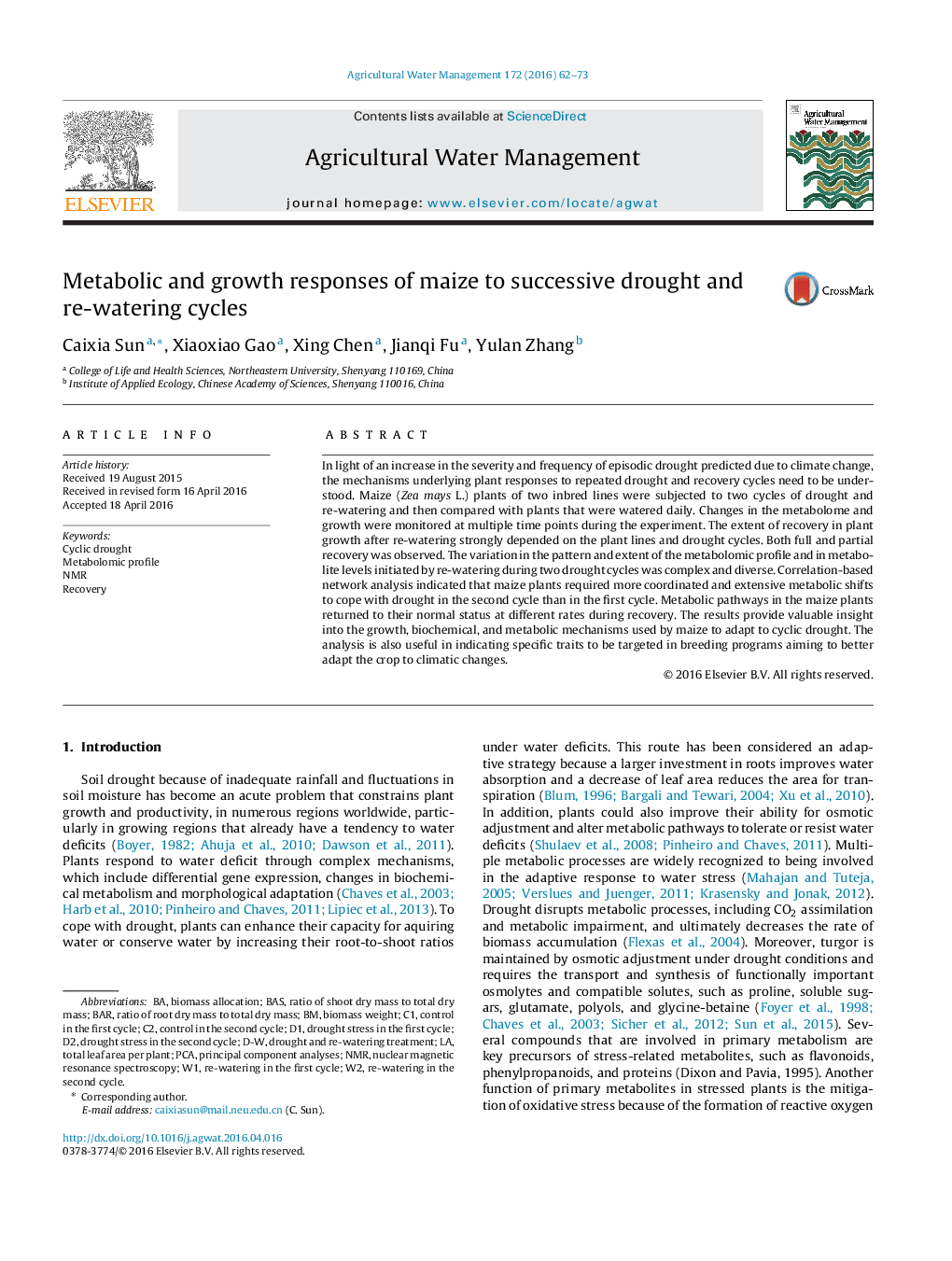| Article ID | Journal | Published Year | Pages | File Type |
|---|---|---|---|---|
| 6363510 | Agricultural Water Management | 2016 | 12 Pages |
Abstract
In light of an increase in the severity and frequency of episodic drought predicted due to climate change, the mechanisms underlying plant responses to repeated drought and recovery cycles need to be understood. Maize (Zea mays L.) plants of two inbred lines were subjected to two cycles of drought and re-watering and then compared with plants that were watered daily. Changes in the metabolome and growth were monitored at multiple time points during the experiment. The extent of recovery in plant growth after re-watering strongly depended on the plant lines and drought cycles. Both full and partial recovery was observed. The variation in the pattern and extent of the metabolomic profile and in metabolite levels initiated by re-watering during two drought cycles was complex and diverse. Correlation-based network analysis indicated that maize plants required more coordinated and extensive metabolic shifts to cope with drought in the second cycle than in the first cycle. Metabolic pathways in the maize plants returned to their normal status at different rates during recovery. The results provide valuable insight into the growth, biochemical, and metabolic mechanisms used by maize to adapt to cyclic drought. The analysis is also useful in indicating specific traits to be targeted in breeding programs aiming to better adapt the crop to climatic changes.
Keywords
Related Topics
Life Sciences
Agricultural and Biological Sciences
Agronomy and Crop Science
Authors
Caixia Sun, Xiaoxiao Gao, Xing Chen, Jianqi Fu, Yulan Zhang,
